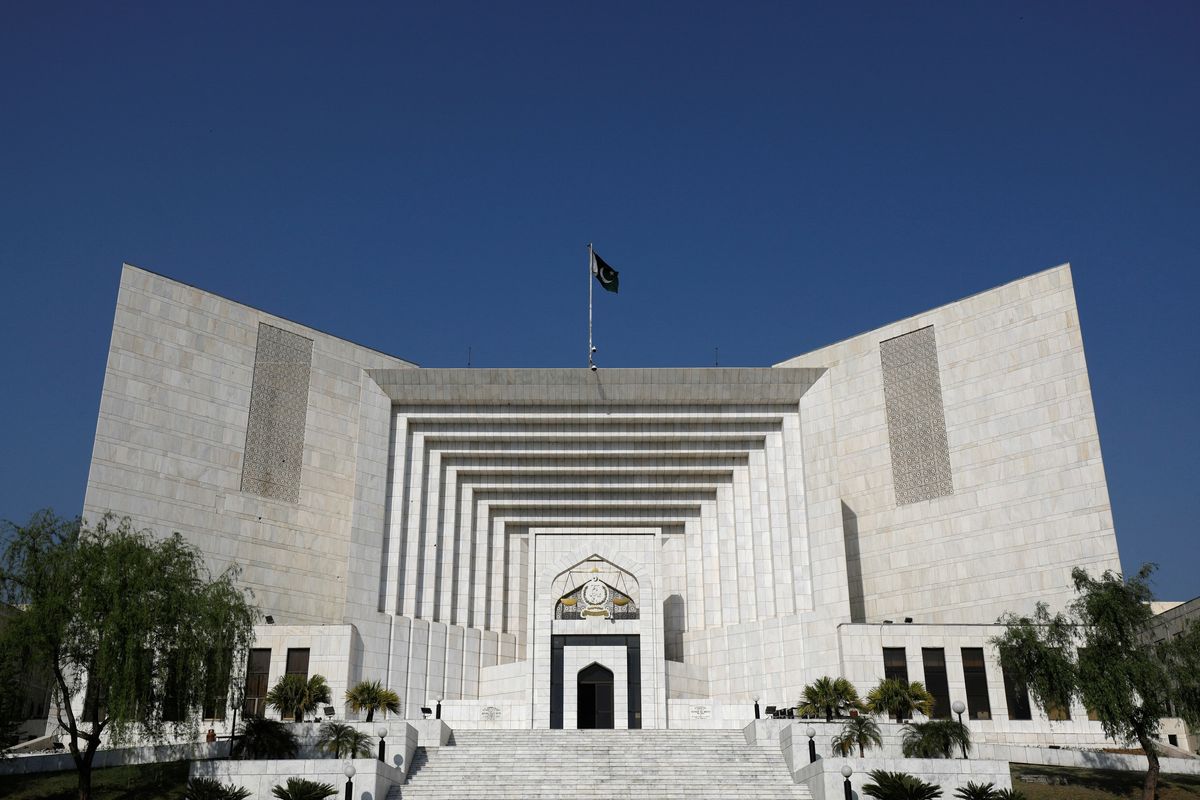Pakistan’s top court clarifies jurisdiction dispute not linked to 26th Constitutional Amendment
Case has brought attention to Pakistan's dual justice system

Aamir Abbasi
Editor, Islamabad
Aamir; a journalist with 15 years of experience, working in Newspaper, TV and Digital Media. Worked in Field, covered Big Legal Constitutional and Political Events in Pakistan since 2009 with Pakistan’s Top Media Organizations. Graduate of Quaid I Azam University Islamabad.

Pakistan's Supreme Court on Wednesday clarified that a case concerning the jurisdiction of judicial benches formed under the 26th Constitutional Amendment does not inherently criticize the law itself.
Justice Mansoor Ali Shah, responding to this sentiment, remarked: “If fear arises without a cause, that's a different matter.”
The case has brought attention to Pakistan's dual justice system, where the 26th Constitutional Amendment introduced two parallel benches in the judiciary.
Attorney General Mansoor Usman Awan appeared before the court and raised objections over the appointment of court assistants. He argued that the appointed assistants were lawyers who had previously represented petitioners opposing the 26th Constitutional Amendment.
Despite these objections, the court appointed two additional assistants, Khawaja Haris and Ahsan Bhoon.
Also present in court was Nazar Abbas, who had been dismissed from his position as additional registrar of the Supreme Court for transferring the case assigned to Shah to the regular bench.
Questioning him about the transfer, Shah said: "Our intent was not to accuse anyone of contempt, but to understand why this happened." The court asked Abbas to submit a written explanation by Thursday.
Attorney General Awan emphasized that the court’s jurisdiction in contempt cases is limited and that a written statement from the recipient of the show-cause notice is essential. He also argued that, under the 26th Constitutional Amendment, the authority to form benches lies with the constitutional committee formed by parliament.
Shah, addressing Awan, remarked, "You’re smiling, Mr. Attorney General; why not suggest a name for a court assistant?"
To this, Awan replied with a smile, "I am not suggesting any names."
Court assistant Munir Malik proposed forming a full court bench to resolve the matter permanently. He argued that the determination of constitutional benches and cases should rest with the judicial commission, and that judicial orders can only be modified by other judicial orders, not administrative decisions.
On Monday, a case challenging the bench’s jurisdiction was transferred from a regular bench to the constitutional bench, raising concerns about a conflict of interest. The case has been rescheduled for Jan. 27.
The case was initially assigned to Shah who has been a vocal critic of the 26th Constitutional Amendment. The transfer decision was reportedly made during a judges’ committee meeting without notifying Shah, raising questions about transparency.







Comments
See what people are discussing